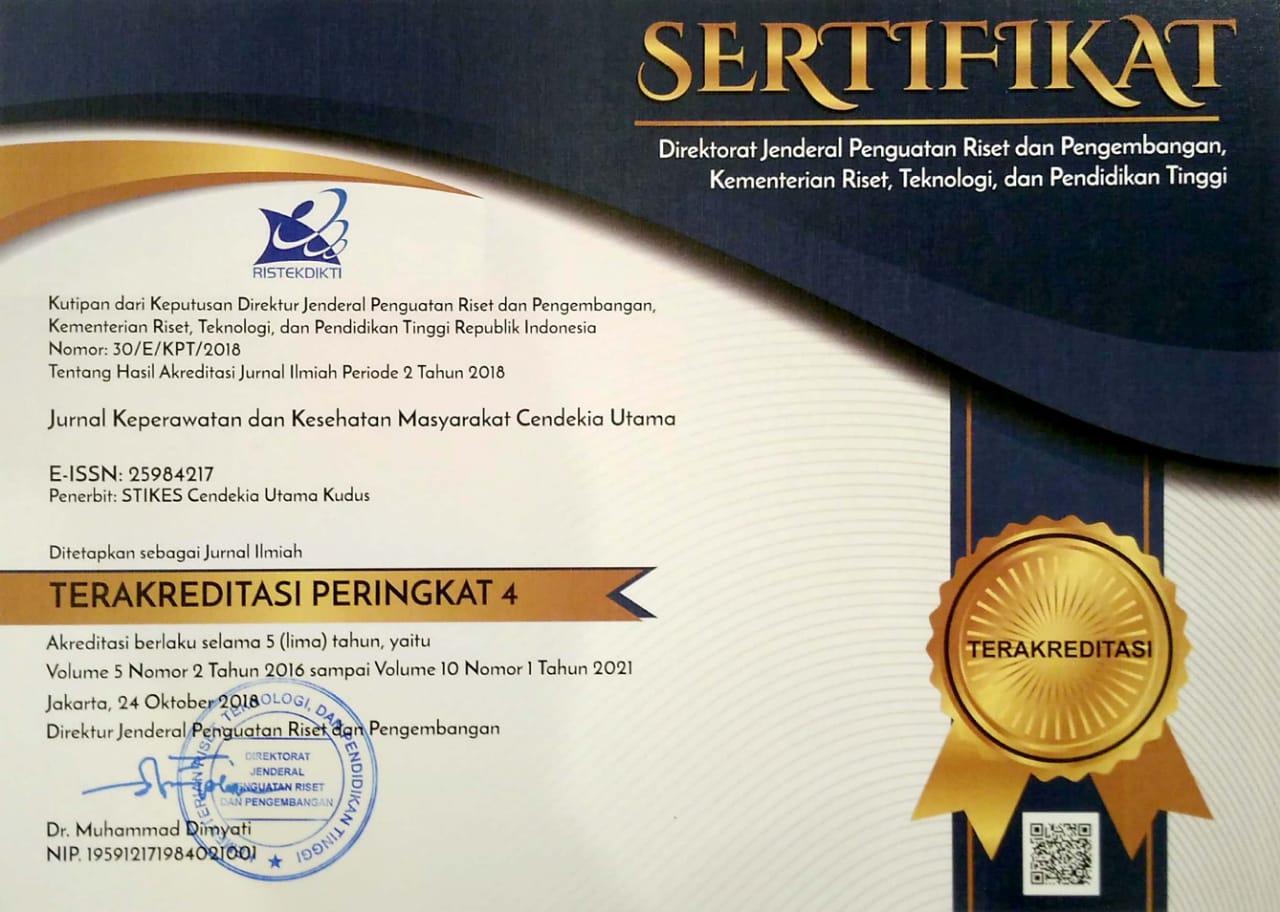KESEHATAN MENTAL MAHASISWA DALAM PROSES PEMBELAJARAN DARING SELAMA PANDEMI COVID-19
(1) Institut Teknologi Kesehatan Cendekia Utama Kudus
(2) Institut Teknologi Kesehatan Cendekia Utama Kudus
(3) Institut Teknologi Kesehatan Cendekia Utama Kudus
(4) Institut Teknologi Kesehatan Cendekia Utama Kudus
(5) Institut Teknologi Kesehatan Cendekia Utama Kudus
(*) Corresponding Author
Abstract
The online learning process is learning in a network or called distance learning using information technology such as the internet. During the COVID-19 pandemic, online learning is mandatory in all educational institutions, both in Indonesia and abroad. In 2022 online learning will still be carried out in several educational institutions, one of which is Higher Education. There are several problems caused by online learning, one of which is student mental health. Mental health is defined as a healthy soul where a person feels happy physically and mentally, recognizes one's potential, is able to deal with stress, thinks positively, and is useful for others. Students are prone to experiencing mental health disorders because the stage of student development is in the late adolescent phase, where in this late adolescent phase students will experience an identity crisis, self-determination, and experience pressure from the environment. Signs and symptoms of mental health disorders include stress, depression, anxiety, confusion, anxiety, frustration, fear, sleep and eating patterns disturbances, feeling depressed, difficulty concentrating, and psychotic disorders. The impact of disturbed student mental health can result in reduced quality of life, use of psychoactive substances, psychotic disorders, and suicide. This study aims to determine the mental health of students in the online learning process during the COVID-19 pandemic. The research method used is quantitative with an analytic descriptive approach. The sample used was 220 students using total sampling. The research instrument uses SRQ-20. Data analysis used univariate analysis with frequency distribution tables. The results showed that as many as 56.82% of students were indicated to have mental health problems, and the remaining 43.18% were not indicated to have mental health problems. The conclusion of the study is that most students experience disturbed mental health, so it is hoped that there will be regular mental health screening of students.
Keywords
Full Text:
PDFArticle Metrics
DOI: https://doi.org/10.31596/jcu.v12i1.1298
Refbacks
- There are currently no refbacks.
Copyright (c) 2023 Jurnal Keperawatan dan Kesehatan Masyarakat Cendekia Utama

This work is licensed under a Creative Commons Attribution 4.0 International License.
Journal Indexed by:







Copyright of Jurnal Keperawatan dan Kesehatan Masyarakat Cendekia Utama. ISSN: 2252-8865 (Print) dan 2598-4217 (Online).



This work is licensed under a Creative Commons Attribution 2.0 Generic License.





